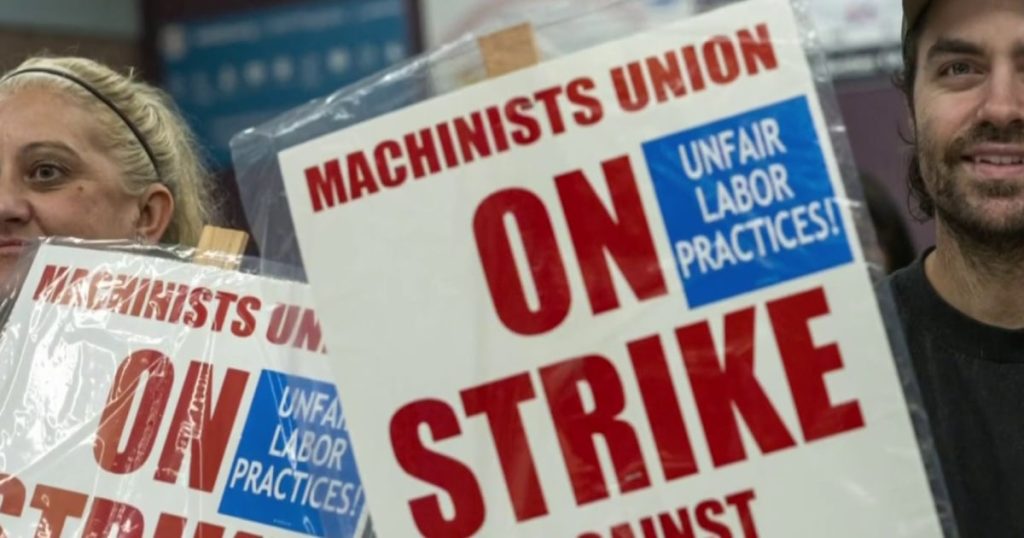Thousands of Boeing workers have voted to go on strike after rejecting a contract offer from the company. The decision to strike was made late Thursday, and workers are now preparing to take collective action. The rejection of the contract offer signifies the dissatisfaction among workers with the terms and conditions proposed by Boeing. This development could potentially disrupt operations for the company and impact its ability to deliver on orders and meet deadlines.
The strike authorization comes at a time when tensions between labor and management are already high across various industries. Workers are seeking better wages, benefits, and working conditions, while companies are facing pressure to manage costs and remain competitive. The outcome of the Boeing strike could have broader implications for the labor movement and the balance of power between workers and corporations. It also highlights the ongoing challenges faced by workers in negotiating fair contracts with their employers.
The rejection of the contract offer and authorization of a strike by Boeing workers reflect a growing trend of labor activism and collective bargaining efforts in response to corporate policies and practices. Workers are increasingly asserting their rights and demanding fair treatment from their employers. The decision to strike is a bold move by the Boeing workers to press for their demands and achieve better outcomes for themselves and their families. The strike could serve as a rallying cry for other workers facing similar challenges in the current economic climate.
The potential strike at Boeing could have significant implications for the aerospace industry and the company’s operations. Boeing is a major player in the aerospace sector, and any disruption to its production and delivery schedules could have cascading effects on its customers, suppliers, and the broader economy. The strike could result in delays in aircraft production, deliveries, and services, impacting airlines, defense contractors, and other stakeholders in the industry. The outcome of the strike will be closely watched by industry observers and could set a precedent for future labor disputes in the aerospace sector.
The Boeing strike highlights the broader issues facing workers in the current labor market, including concerns about job security, wages, benefits, and working conditions. The strike also underscores the power dynamics between labor and management, as workers seek to assert their rights and negotiate fair terms with their employers. The outcome of the Boeing strike will have implications for the company, its workers, and the broader labor movement. It will also shed light on the challenges and opportunities facing workers in the aerospace industry and beyond.
Overall, the decision by Boeing workers to reject a contract offer and authorize a strike is a significant development in the ongoing struggle for workers’ rights and fair treatment in the workplace. The strike could have far-reaching implications for Boeing, the aerospace industry, and the broader labor movement. It also reflects the growing momentum of labor activism and collective bargaining efforts in response to corporate policies and practices. The outcome of the Boeing strike will shape the future of labor relations in the aerospace sector and serve as a barometer for the challenges faced by workers in negotiating fair contracts with their employers.


